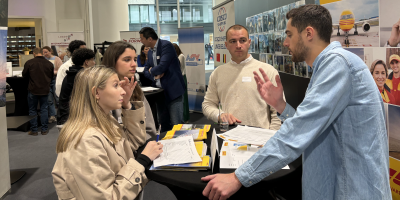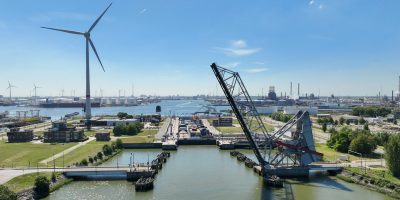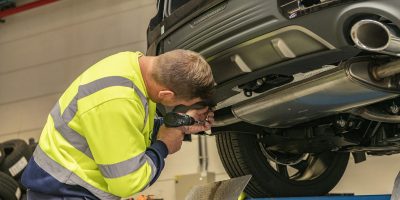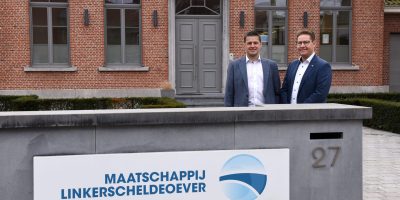AP University of Applied Sciences responds to port needs with graduate degree in terminal management

Within the Transport and Logistics degree, AP University College is launching the Terminal Management major from September 2024. Programme coordinator Dimitri Popelier explains how the new course came about in consultation with the port community.
Various bachelor and graduate courses are offered at AP University College with a city campus in the heart of Antwerp. A graduate is what is called an associate degree in English; it is a two-year course so that you can start working immediately.
“We started the Transport and Logistics graduate course six years ago,” Dimitri Popelier looks back. “At the time, there were two graduate courses: Customs Declaration and Road Transport. Since the start six years ago, student numbers have almost doubled. Two years ago, a third major was added with Warehouse Management, specifically at the request of the field, and Terminal Management will be added from school year 2024-2025.”
Dialogue with companies
For AP University of Applied Sciences, this dialogue with industry is crucial. For instance, twice a year, work field committees are organised, in which companies indicate which competences the students must have. “One of Europe’s most important ports is in our backyard, so to speak,” says Popelier. “The graduate course Terminal Management therefore focuses specifically on maritime transport.”
The first year of the graduate course is general, the second year is then specialisation. So at AP University of Applied Sciences, there are four possible specialisations: Customs Clearance, Road Transport, Warehouse Management and, from September, Terminal Management.
“During the first year of graduation, we offer a broad education, with a general introduction to transport & logistics, an ICT component and also languages. After all, bilingualism remains important in Belgium,” Popelier points out. But the lion’s share of the training consists of workplace learning, doing internships at companies.
Workplace learning
“So we are looking for companies that can host students for our new direction as part of workplace learning,” Popelier says. “With many companies we already have a very good cooperation, and workplace learning is a win-win. It allows the students to get to know the practice, but in most cases it is the case that these students are also offered a contract with the company where they do their internship. The advantage is that they know the DNA of the company and have been able to gain valuable work experience.”
But Popelier is also thinking about other things as part of the Terminal Management direction. “Besides internships, we are also constantly looking for companies we may visit as part of the training. We are also always looking for guest speakers from the business world, they can help to get the students excited. Very specifically for Terminal Management, we are looking for new lecturers, and for this we are also looking at people from the business world.”
“We read in Flows that there are 5,000 vacancies in the port and related companies today,” says Dimitri Popelier. “With our degree in Transport and Logistics, we are training the right people to fill them. Given that the port of Antwerp will also expand solidly with project ECA, we are convinced of the added value of this new direction.”




